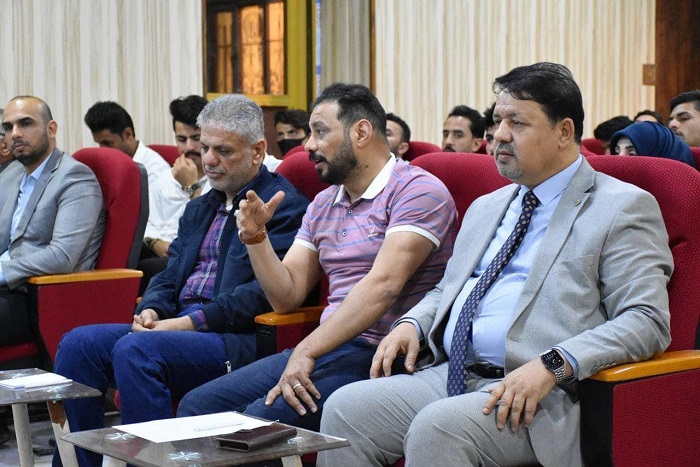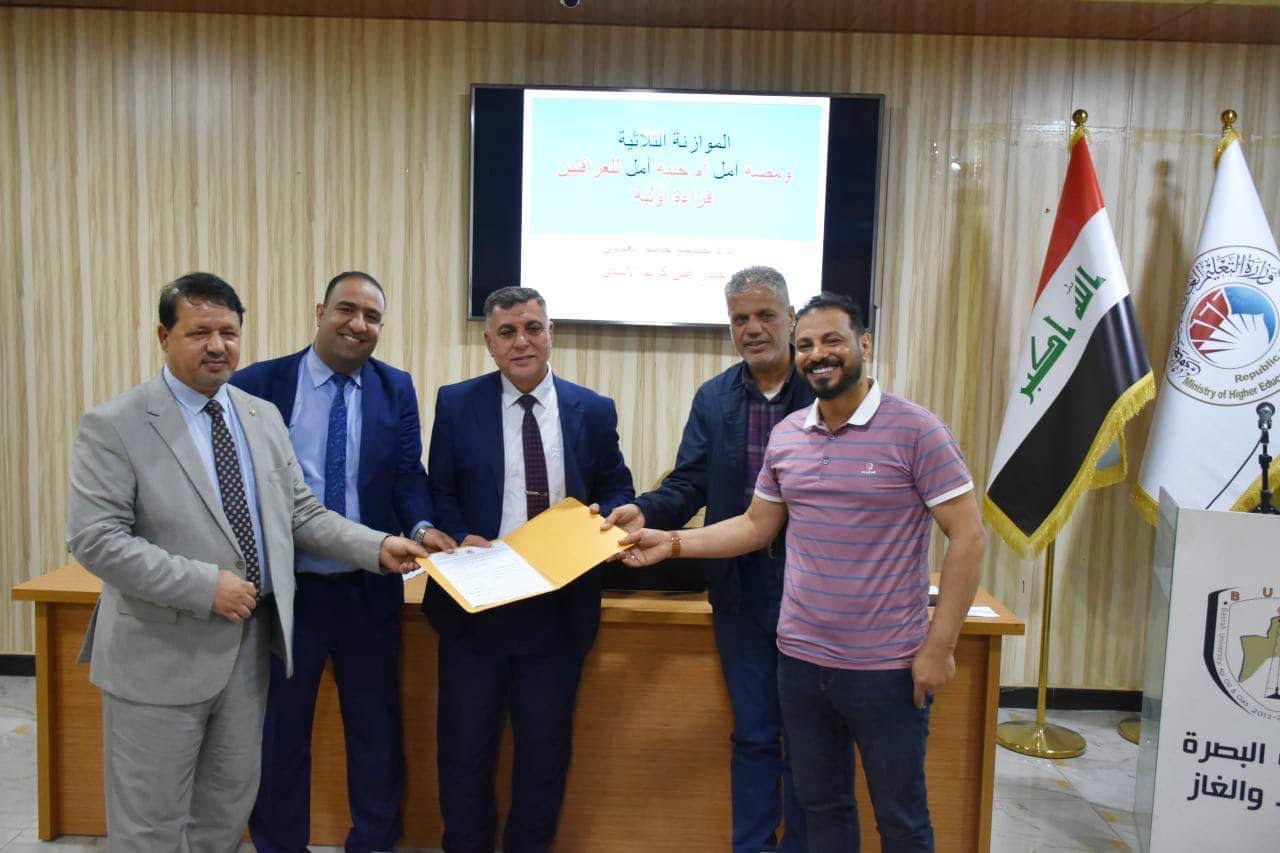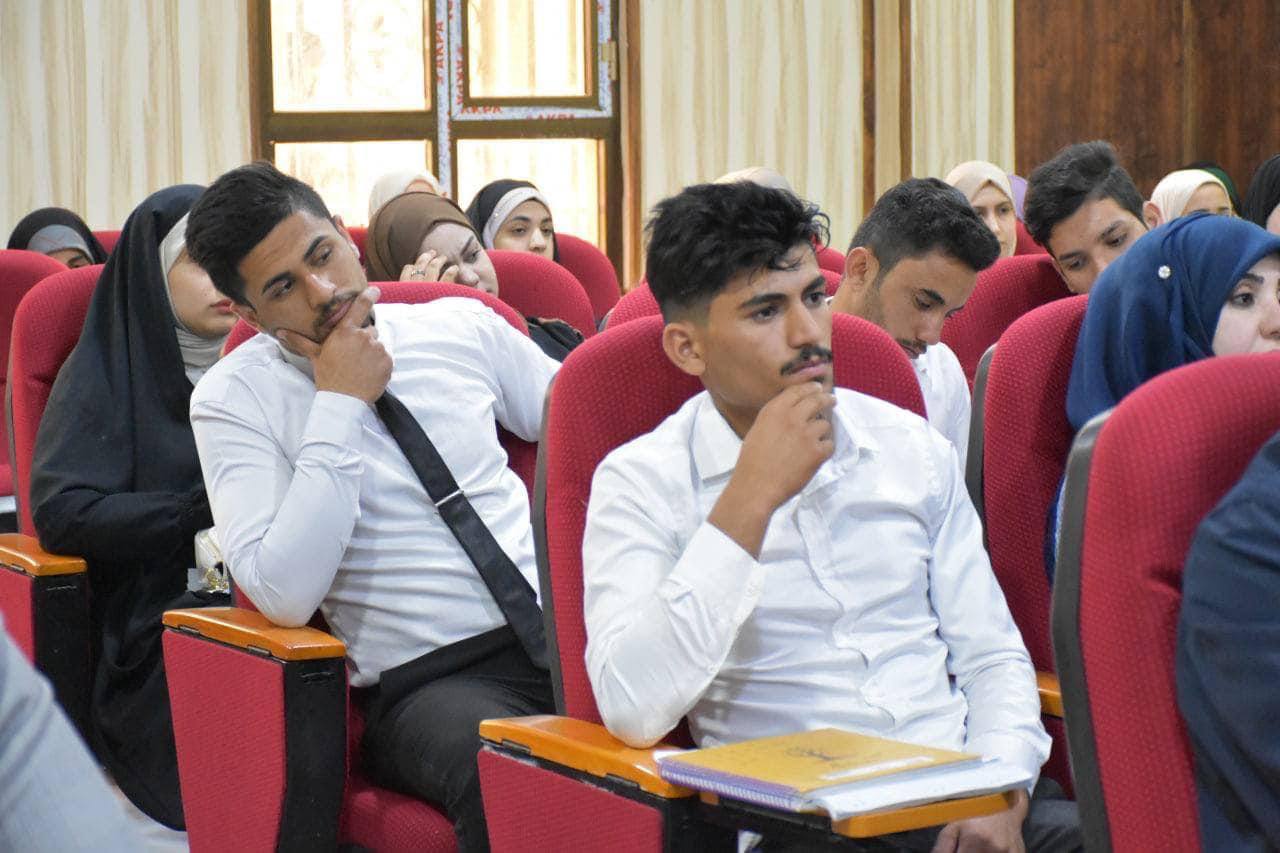
College of Industrial Management for Oil and Gas at Basra University for Oil and Gas organized a scientific symposium entitled (The Tripartite Budget, A Flash of Hope or Disappointment for Iraqis: Preliminary Reading), sponsored by the President of Basra University for Oil and Gas and supervised by the Dean of College of Industrial Management for Oil and Gas, and the assistant Dr. Nsaif J. Ali. It held on Sunday, the twenty-sixth of March, on the conference hall at the College. Mr. Haider indicated at the beginning of the symposium that the budget has become a preoccupation for social and specialized circles since its approval by the Council of Ministers and sending it to the Parliament. It contradicts the financial management law in the country, in addition to the rise in the price of a barrel of oil in the budget to 70 dollars, and if it decreases in the future, it may also cause confusion in oil revenues, which represents the largest percentage of the budget. Then the lecturer, Dr. Nassif said that the budget was the largest budget in the history of Iraq, but we found the dominance of the two paragraphs of salaries and social welfare, which alone amount to 87 trillion dinars and represent 58% of total operating expenses and 74% of oil revenues. Dollars per barrel, which was the highest among the budgets of all oil countries. Any reduction in the selling price of Iraqi oil would exacerbate the deficit in the budget, and increase internal and external debts, especially Iraq lacks a sovereign fund that could be a buffer in cases of low oil prices below their levels. About the taxes imposed in the budget, the lecturer explained: The taxes would lead to enhancing non-oil revenues and limiting, even a little, the smuggling of fuel abroad, but it would lead to a rise in the cost of transporting people and goods, and then a new rise in the prices of goods and services, which might lead to exceeding the rate of inflation. The annual budget specified by 5% negatively affects the standard of living of citizens, and he concluded his speech by saying: The most unfair paragraph for the south is reducing the oil-producing provinces’ share of petrodollars from 7 trillion to 2 trillion. The symposium witnessed several interventions, the first of which was the administrative assistant, Yousef Al-asadi regarding the determined by the budget at 5% and the negative impact on the standard of living of citizens, and he concluded his speech by saying: The most unfair paragraph for the south is reducing the oil-producing provinces’ share of petrodollars from 7 trillion to 2 trillion. The symposium witnessed several interventions. At the end of the symposium, the lecturer presented several recommendations that would ripen the budget in a way that reduces problems in implementing the budget for the next three years.

